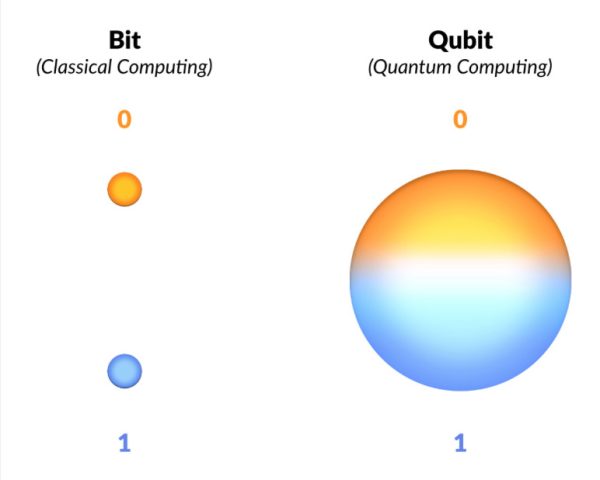As internet users, we all know it’s extremely difficult to memorize hundreds of passwords for different sites. Many would even admit to using the same password for everything—been there, done that! Fortunately, there are programs available to auto-generate and store encrypted passwords to make the process easier on safety and our feeble minds. Cool, right?
Well, not anymore. Because, even though many of us consider ourselves “ahead of the curve” for using these supposedly unhackable passwords, the rise of quantum computing has the power to breach all algorithms used for password encryption we rely on today for privacy. And that’s just one example of its abilities. Not feeling so good about ourselves now are we?
As a field reliant on both computer science and quantum mechanics, quantum computing can solve problems too complex for ordinary or supercomputers in exponentially smaller amounts of time. In other words, the power of quantum computing extends far beyond just cybersecurity. In fact, in 2019, Google found that a problem that would take 10,000 years for the world’s fastest supercomputer would take less than 200 seconds for the average quantum computer. To put that into perspective, it could finish high school in 0.08 seconds. Gee, way to make us all look stupid.
Quantum computing employs quantum mechanics’s Heisenberg Uncertainty Principle, which states that because of the uncertainty of an electron’s placement in an atom at a given moment; there are thousands, if not millions, of possibilities of the placement of a particle in space or, in this case, data. While standard computers use 0s and 1s to represent data, a quantum computer is able to use qubits—quantum bits—where data can exist in a superposition where it is both 0 and 1. Because of this, the computer can perform many calculations at once, speeding up the calculations exponentially.

Because of the sheer capacity of information that can be processed and analyzed using quantum computing, many of its applications involve thousands, even millions of variables that need to be accounted for. From predicting the behavior of subatomic particles in chemical reactions to plotting specific routes for thousands of cargo ships in order to meet supply demands, quantum computing breaks down the largest uncertainties in our world into digestible data, proving indispensable to modern-day problem-solving.
Many large corporations have utilized the abilities of quantum computing in order to lessen their impacts on climate change. Mercedes-Benz is currently using quantum computing to innovate more carbon-efficient car batteries. Although we can build batteries with relative ease, how it works on a subatomic level still remains a mystery. T
he current efforts to build more environmentally friendly batteries require decades of tedious research and testing, with little direction as to what will end up working. However, using quantum computing to simulate the interactions of lithium ions in batteries can give much further direction in the innovation of carbon-efficient batteries.
As of right now, one Mitty student is utilizing quantum computing to make a real-world impact: senior Adelina Chau is currently using quantum machine learning to assist with drug discovery, searching the chemical space, and generating potential novel drug candidates for targeting rare diseases much more efficiently than classical computing techniques. Adelina explains that quantum computing allows her team to pursue parallel computation, where tasks can be run simultaneously due to quantum superposition and entanglement.
One of the primary concerns of quantum computing is its potential to replace everyday computers in the future. However, Adelina assures us that “in reality, quantum computers aren’t meant as a replacement or to be used to solve all types of computing problems.
Quantum computers are being developed to solve problems where there is actually a significant speedup or quantum advantage as opposed to using classical computers.” Quantum computers replacing everyday computers is comparable to NASA supercomputers replacing your Macbook from 2015. The processing of such large data simply isn’t needed on a day-to-day basis, which is why people can rest assured that this new technology won’t replace what we are familiar with.
Without the imminent threat of quantum computers taking over the world, what else can the technology do for our future? For starters, it could solve already-existing computational problems in seconds, perhaps soon making supercomputers outdated. They also have the potential to path unfathomable frontiers in STEM, like fully solving the climate crisis and food insecurity.
Needless to say, it can definitely balance chemical equations faster than we can on our upcoming test: and maybe that’s all we personally need. With the promise of several thousand quantum computers in public circulation by 2030, the field is likely to take center stage from AI—and maybe become the next ChatGPT—and solve computations faster than ever before. Until then, we better wait a few thousand years before we ever learn how to do our physics homework.

